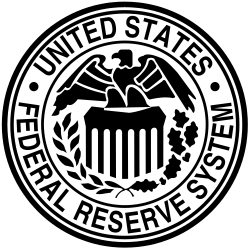One size fits all approach to anything saves some but kills others. So goes the Federal Reserve’s policy of continually raising interest rates in an effort to curb inflation. While the “too big to fail” banks get plenty of help from the federal government small institutions struggle to compete.
Hopefully the fed can slow down its continued rate hikes. I know they’re likely to continue to raise them in the coming months, and maybe over the next year, but if they slow down the rate of increase maybe smaller institutions will have the ability to respond to the changing environment.
When the Fed started raising interest rates to fight inflation, the conventional wisdom was that it would be a boon for Main Street banks. They were expected to increase the rates they charged on loans faster than those paid to depositors, pocketing the difference.
Instead, the opposite is happening. The Fed’s hikes and the failures of a trio of midsize banks are prompting once-loyal customers to pull their money out of checking accounts that pay no interest. Banks are paying much higher rates on the deposits they are retaining, which is eclipsing the benefit of charging more on loans. They also are hoarding cash and tapping high-cost loans in response to the recent failures.
In the first quarter, community banks paid on average 1.14% on deposits, up 0.39 percentage point from the prior quarter, according to the Federal Deposit Insurance Corp. They earned 5.36% on loans, up 0.16 percentage point from the prior quarter.
Community banks, which are smaller lenders that focus on plain-vanilla lending to their communities, are especially dependent on this type of interest income. Megabanks are also getting pinched by higher deposit rates, but they have the cushion of fee-based income from big trading, investment-banking and wealth-management businesses.
Community banks’ profits are expected to decline 23% this year, according to S&P Global Market Intelligence. That is steeper than the 18% decline that S&P forecasts for banks across the industry. Scarce deposits are expected to contribute to a lending slowdown. Any economic downturn or trouble in commercial real estate would only heighten the strain.
Everyone Wants Interest on Their Deposits. That’s Bad for Main Street Banks. – WSJ (no paywall)

